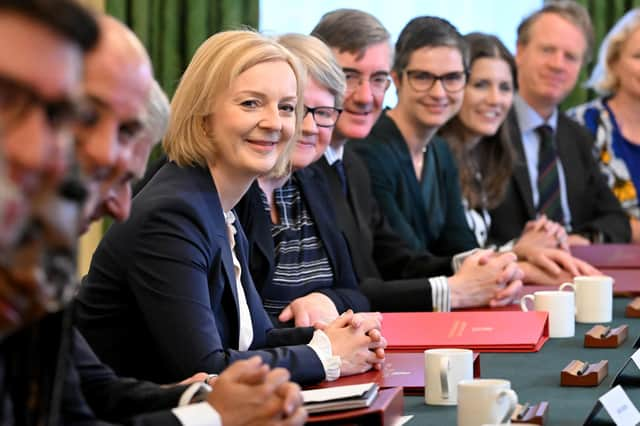Energy price crisis: Liz Truss and co's failure to act sooner may have contributed to pushing UK into stagflation recession – Scotsman comment


The Bank noted that food retailers had reported customers were “trading down to cheaper goods and cutting back on non-essential items, such as confectionery" and that “sales volumes of household items, such as furniture, electrical goods and home-improvement products continued to fall”.
A growing number of companies had also chosen to delay investments, it added, because of “uncertainty about demand and the broader economic outlook and tighter financial positions”.
Advertisement
Hide AdAdvertisement
Hide AdThere was some good news – inflation is now expected to peak at 11 per cent, rather than 13 – but it was overshadowed by the growing sense that our economic troubles are set to get much worse.
It was eminently predictable that people, faced with the prospect of eye-watering energy bills, would cut back on spending.
And yet, for nine weeks, the UK Government was basically absent without leave – from the public – as Boris Johnson went on holiday and the Conservative leadership candidates tore lumps out of each other.
If only people had known sooner about the enormous, if poorly targeted, package of help announced by Truss, they might not have cut back so much. Recessionary pressures would have been eased.
The Conservative party could and should have run the contest more quickly; or Truss, her defeated rival Rishi Sunak and Johnson could have got together to agree what to do, as suggested by the Scotsman and other commentators. They chose not to.
Either they failed to recognise the scale of the crisis, how seriously people on middle and low incomes would be affected, and how dangerous this would be to the overall economy or they did not care.
Their narcissistic, bureaucratic insistence on working at their own ponderous pace helped increase fears of consumers and uncertainty for businesses. And in a market economy, confidence is vital.
This may sound like crying over spilt milk, but it is a worrying sign for the future. As the UK stares down the barrel of a stagflation recession, we need politicians alive to every potential threat and every possible solution, not self-obsessed and dangerously out of touch.
Comments
Want to join the conversation? Please or to comment on this article.
